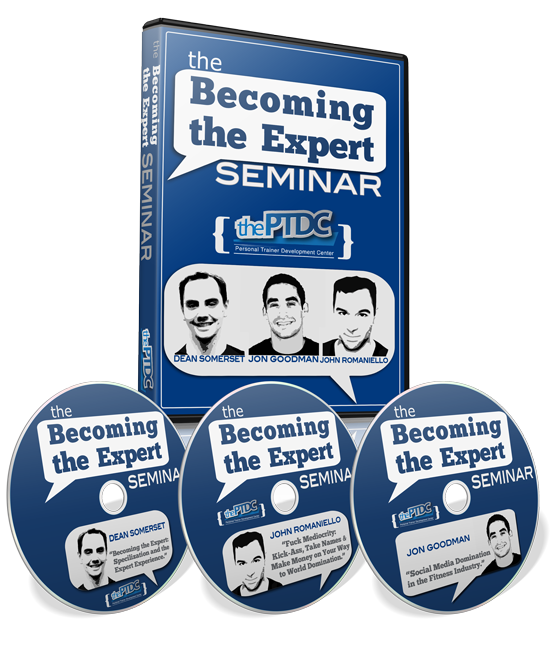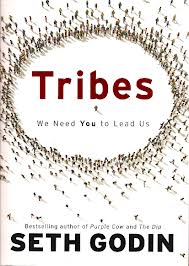How Do You Tell Who Is The Expert?
Last October I was invited to speak at the “Becoming the Expert” seminar in Toronto with the Personal Trainer Development Centre. For those who aren’t aware, this is a great resource for new and experienced trainers alike to expand their business and client getting/retaining skills, with resources written by some of the most experienced and successful trainers in the game.
You should totally pick up a copy for yourself, especially if you want to hear some incredibly handsome and successful people talk about being incredibly handsome and successful.
And see me do a magic trick.
The seminar was called “Becoming the Expert,” which is a term I tend to really dislike using. Take disciplines such as martial arts, medicine, law, the military, and any number of other highly venerated callings. In order to achieve “master” status in any of them, you have to undergo years of dedicated study under the guidance of a master. In medicine you have the residents and the resident supervisors. In law you have the articling students and the supervisors. In martial arts you have the students and the sensei.
In personal training, there isn’t really a lot of this going on. There’s the odd very successful organization that will take on interns for a year or two, and occasionally they even get paid. Aside from that, most trainers are left to fend for themselves, learning whatever is of their interest, finding people who know a thing or two about a thing or two, and hopefully not fall into a trap by some slick-talking systems pusher who is only interested in their money.
What this means is there’s no system for accountability to hold trainers to. Essentially, to be an expert in the fitness industry, you just have to:
A.) Look the part
B.) Have a slick website or access to video cameras and distribution systems
C.) Call yourself an expert, and
D.) Have people believe you.
During my talk, I brought up a comparison between three relatively well-known experts in their field relate to the fitness community: Dr. Stuart McGill, the god-father of spinal biomechanics; Pavel Tsatsouline, the man who popularized kettlebell training in its’ modern form across North America; and Jillian Micheals.
Dr. McGill has contributed more to the development of the scientific research regarding what causes and fixes low back pain from a structural and exercise aspect, while also providing mountains of research on how to optimally train the core for every population. Pavel developed the RKC, and now SFG, kettlebell certifications, worked with Gray Cook to put together the CK-FMS screen and approach, and has also written books, made (shirtless) videos, and taught hundreds of classes around the world to popularize kettlebells.
And Jillian Micheals does stuff like this:
Watching that makes me want to throw my face onto an axe to dull the pain. That being said, if I were to show 100 people walking down the street the pictures of McGill, Pavel and Jillian, maybe 2 would know who McGill is (especially if he was holding a spine), possibly 3 would know who Pavel is (especially if he was holding a kettlebell), and roughly 99 would know who Jillian is. This is primarily due to her role as a trainer on The Biggest Loser, and the fact that she has more DVDs and books lining the shelves of most book stores than any other fitness personality in history.
The main point of this is simple: Being an expert is all about perception. The perception of someone who is looking for a figurehead whom they can trust because they’ve seen them frequently and on trusted sources (television), regardless of whether they know what they’re doing or not. Irrespective of the facts that McGill has done exhaustive research on the loads biomechanics of safe and unsafe kettlebell exercises, based on the teachings of Pavel, people will go out and buy that eyesore of a swing, and wind up in the hospital with either a broken face or ripped up back because they believed the expertise of the person they saw the most.
Expertise is merely a product of exposure. Everyone has their trusted sources, where they’ll go to further their knowledge on specific subjects, and trust that person wholeheartedly. I’m thankful that so many use my site and products for this, but I’ll be the first to say that I’m no expert, just slightly ahead of the curve. That’s not a misguided false modesty, that’s reality, baby.
In my presentation, I talk about how you can use the innate human desire to follow leadership to your advantage, and how to build an audience. A tribe, if you would allow a Seth Godin concept.
To be honest, it’s always a nice departure to give a presentation that doesn’t involve fitness directly. While showing how to go from problem to solution with a warm body in front of you is always great, the tricky part that a lot of trainers struggle with is getting that warm body in front of you and having them believe what you’re trying to say.
The development of this kind of business aptitude, this type of culture and professionalism, and, dare I say, expert status, can help fitness professionals and other like minded professionals who work with people, develop the business they want and have a massive impact on the lives of those with whom they come into contact.
For this week only, “Becoming the Expert,” a 3 DVD package with over 4 hours of bonus material, is available for a steal of a deal at only $87 [check the price]. You should get on this, if not for the reasons listed above, then at least for the following:
- I get what will go down in history as one of the greatest burns on Mark Young, which left him speechless. If you know of Mark from the internet, you know this is impressive in itself
- I do an honest to goodness magic trick live, and I didn’t screw it up.
- John Romaniello has longer eye lashes than I do, which is no small feat.
- Jon Goodman has an adorable speaking voice, and can show you ways of using Twitter and Facebook to your advantage that you would have never thought of before.
Seriously, get this video series and you won’t regret it. That being said, if you do regret it, come on down to Las Vegas today, find me walking up and down the strip with my wife, and feel free to throw a big bag of Burger King Whoppers at me if it will make you feel better.



3 Responses to How Do You Tell Who Is The Expert?